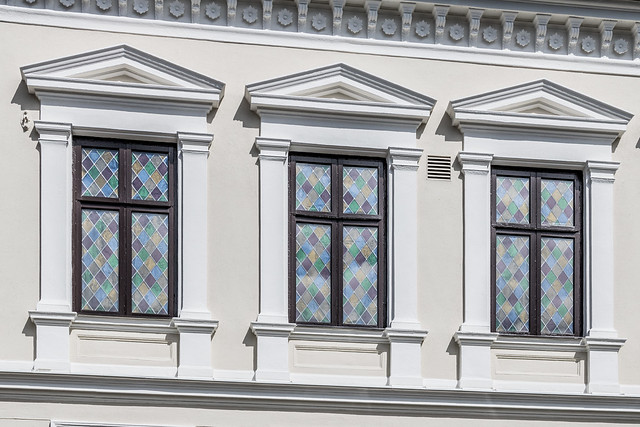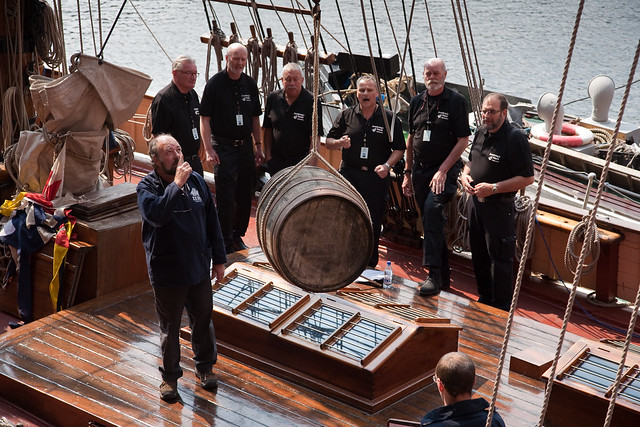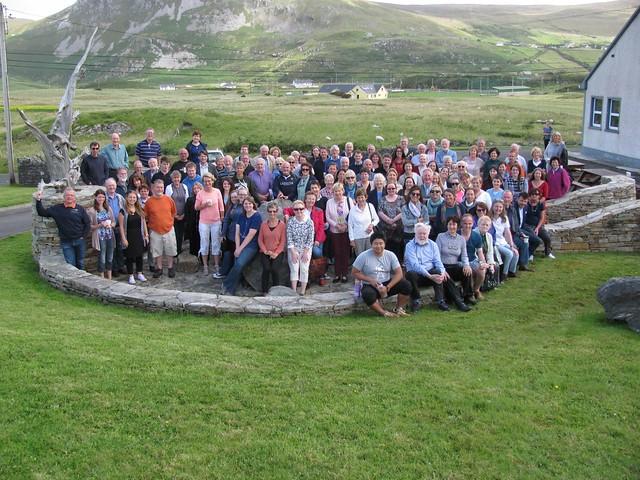Podcast: Play in new window | Download
Today we are looking at the word window [ˈwɪndəʊ / ˈwɪndoʊ].
Definition: an opening in the wall of a building, the side of a vehicle, etc., for the admission of air or light, or both, commonly fitted with a frame in which are set movable sashes containing panes of glass [source].
Window comes from the Middle English windowe/windohe/windoge, from the Old Norse vindauga (window) or literally “wind-eye/wind-hole”, as windows were originally unglazed holes in walls or roofs that allowed the wind to pass through [source].
Another word for window in Middle English was fenestre/fenester, which was used in parallel with windowe/windohe/windoge until the mid 16th century. It comes from the Old French fenestre (window), from the Latin fenestra (window, breach, loophole, orifice, inlet), which possibly came from Etruscan.
In Old English a window was known as an eagþyrel [ˈæ͜ɑːɣˌθyː.rel] (“eye-hole”) or ēagduru [ˈæ͜ɑːɣˌdu.ru] (“eye-door”). This fell out of use by about 1200 AD [source].
Words for window in some other Germanic languages are similar to window, including vindue [ˈvend̥u] in Danish, vindu in Norwegian, vindeyga [ˈvɪntˌɛiːja] in Faroese, and vindöga in Swedish, although that is no longer used, and fönster is used instead.
Words for window in the Goidelic languages were borrowed from Old Norse: fuinneog [ˈfˠɪn̠ʲoːɡ] in Irish, uinneag [ɯn̪ʲag] in Scottish Gaelic and uinnag [onˈjaɡ] in Manx [source].
Here’s a video I made of this information:
Video made with Doodly – an easy-to-use animated video creator [affiliate link].
I also write about etymology on the Omniglot Blog.





